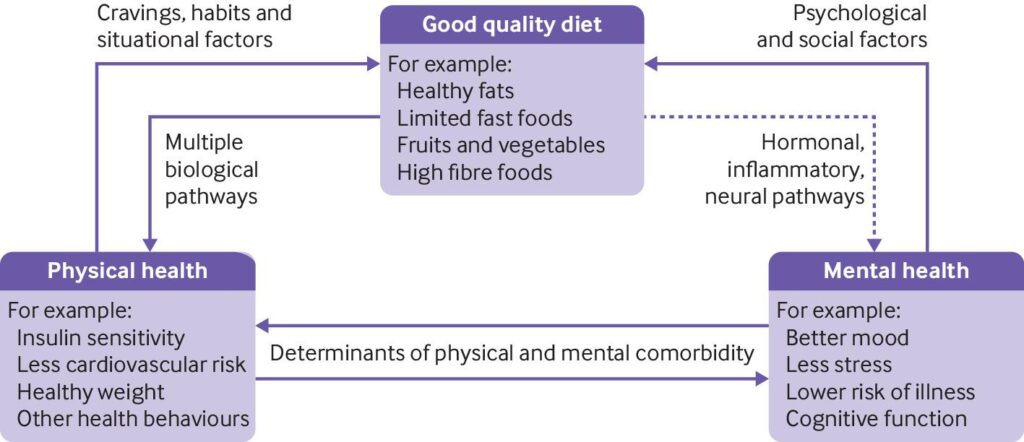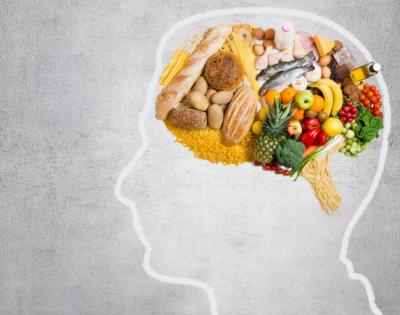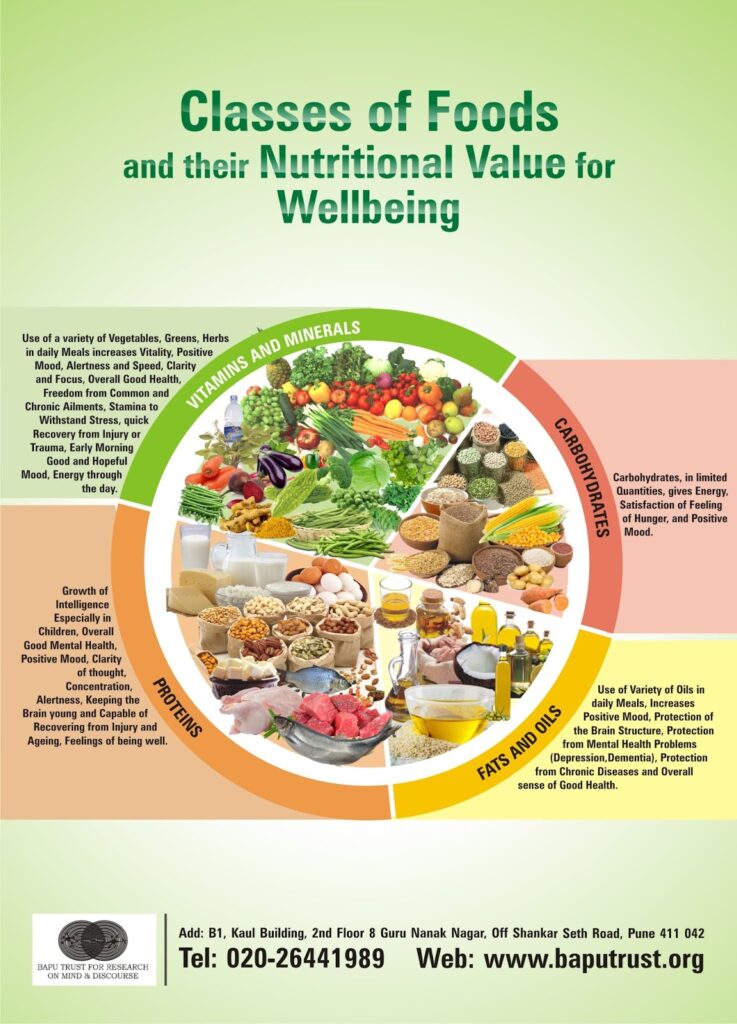I am writing to share the fascinating connection I’ve discovered between healthy eating and mental wellness. As I dug deep into the realm of nutrition, I stumbled upon a wealth of research highlighting the profound impact our diet has on our mental health. It turns out that the food we consume plays a significant role in shaping our psychological well-being. By making conscious choices to nourish our bodies with wholesome, nutrient-rich foods, we have the power to enhance our mental wellness and unlock a happier, more fulfilled life. So, join me as we explore the extraordinary link between healthy eating and mental well-being and uncover the secrets to cultivating a vibrant mind through our diet.
The Link Between Healthy Eating and Mental Wellness

Introduction
Maintaining good mental health is crucial for overall well-being. Many factors contribute to mental wellness, including lifestyle choices and daily habits. One area of growing interest in the field of mental health is the link between diet and mental wellness. Research suggests that what we eat can have a significant impact on our mental health, influencing our mood, emotions, and cognitive function. Understanding this link can help us make informed choices about our diet to promote better mental wellness.
Understanding Mental Wellness
Mental wellness refers to a state of well-being in which individuals can cope with the normal stresses of life, work productively, and engage in meaningful relationships. It encompasses emotional, psychological, and social well-being. Mental wellness is not just the absence of mental illnesses; it involves the ability to adapt to life’s challenges and maintain a positive outlook. Common mental health disorders include anxiety disorders, depression, and mood disorders.

The Impact of Mental Wellness on Overall Health
Good mental health is essential for overall health and well-being. Poor mental health can have a significant impact on our physical health, leading to a range of health problems. Individuals with mental health disorders are more likely to experience chronic physical conditions such as heart disease, diabetes, and obesity. Furthermore, poor mental health can affect our daily functioning and quality of life, making it difficult to maintain relationships, perform well at work or school, and engage in activities we enjoy. Addressing mental health is crucial for maintaining a healthy and fulfilling life.
Research on the Relationship Between Diet and Mental Health
There is a growing body of scientific research investigating the connection between diet and mental health. Numerous studies have found a correlation between diet quality and mental health outcomes. For example, a systematic review published in the American Journal of Psychiatry analyzed multiple studies and concluded that a “traditional” dietary pattern, characterized by high intakes of fruits, vegetables, whole grains, fish, and lean meats, was associated with a lower risk of depression. Other studies have also found associations between unhealthy diets, such as those high in processed foods and added sugars, and increased risk of mental health disorders.

The Role of Nutrients in Mental Wellness
Nutrients play a vital role in supporting brain health and promoting mental wellness. Omega-3 fatty acids, found in fatty fish, walnuts, and flaxseeds, have been shown to have a positive impact on mood and reduce symptoms of depression. B vitamins, particularly folate, B6, and B12, are essential for the production of neurotransmitters like serotonin and dopamine, which regulate mood and emotions. Minerals such as iron, zinc, and magnesium also play critical roles in mental well-being. Maintaining a balanced intake of these nutrients is crucial for optimal brain function and mental wellness.
The Gut-Brain Connection
The gut-brain connection refers to the bidirectional communication between the gut and the brain. The gastrointestinal tract is home to trillions of bacteria, collectively known as the gut microbiota. Research has shown that the gut microbiota can influence mental health and well-being. The microbiota helps regulate neurotransmitter production and has direct communication with the brain through nerve pathways and chemical signals. Disruptions in the gut microbiota, such as imbalances or dysbiosis, have been linked to mood disorders like anxiety and depression. Maintaining a healthy gut is thus essential for mental wellness.

Effects of Unhealthy Eating on Mental Health
Unhealthy eating patterns, such as consuming processed foods and fast food, can have negative effects on mental wellness. These foods are often high in refined carbohydrates, added sugars, and unhealthy fats, which can lead to blood sugar imbalances, inflammation, and oxidative stress, all of which may contribute to poor mental health. Sugar, in particular, has been linked to increased risks of depression and anxiety. Caffeine and alcohol, commonly consumed in excess in modern diets, can also impact mental well-being. Excessive caffeine intake can disrupt sleep patterns and exacerbate anxiety, while excessive alcohol consumption can lead to mood swings and depression.
The Benefits of Healthy Eating for Mental Wellness
Incorporating healthy eating habits into our daily lives can have numerous benefits for our mental wellness. Eating a nutrient-rich diet can improve mood, reduce symptoms of depression and anxiety, and enhance overall mental well-being. Nutrients like omega-3 fatty acids, B vitamins, and minerals like magnesium have been shown to positively impact cognitive function, memory, and concentration. Additionally, a healthy diet can help manage stress and promote better sleep, both of which are crucial for mental wellness. By nourishing our bodies with the right foods, we can support optimal brain function and improve our mental health.

Recommended Foods for Promoting Mental Wellness
Certain foods have been found to be particularly beneficial for mental wellness. Including a variety of fruits and vegetables, which are rich in antioxidants and essential nutrients, can support brain health. Whole grains, such as brown rice and quinoa, provide essential B vitamins and fiber. Fatty fish, such as salmon and sardines, are excellent sources of omega-3 fatty acids. Nuts and seeds, like walnuts and flaxseeds, also provide omega-3 fatty acids and other key nutrients. A well-rounded diet that incorporates these food groups can help support mental wellness.
The Importance of a Balanced Diet
While individual nutrients play crucial roles in mental wellness, it is vital to remember the importance of a balanced diet. A balanced diet ensures that we obtain all the necessary nutrients for optimal brain function. It involves consuming a variety of foods from different food groups, including lean proteins, whole grains, fruits and vegetables, and healthy fats. Avoiding extremes and maintaining moderation is also key. It is essential to find a sustainable and enjoyable approach to healthy eating that suits individual preferences and needs.
Incorporating Healthy Eating Habits into Daily Life
Adopting healthy eating habits doesn’t have to be overwhelming or complicated. Simple strategies like meal planning and preparation can help ensure that nutritious meals are readily available. Mindful eating, which involves paying attention to the taste, smell, and texture of food, can help foster a healthier relationship with food and enhance enjoyment. Building a support system and seeking professional guidance, such as from a registered dietitian, can also be beneficial when making dietary changes. It is important to remember that sustainable changes take time and effort, but the long-term benefits for mental wellness are worth it.
In conclusion, the link between healthy eating and mental wellness is increasingly recognized and supported by scientific research. Diet plays a significant role in mental health and well-being, influencing mood, emotions, and cognitive function. Nutrients, the gut-brain connection, and the effects of unhealthy eating all contribute to this relationship. By adopting a balanced and nutrient-rich diet, individuals can promote mental wellness, reduce the risk of mental health disorders, and enhance overall cognitive function. Making these dietary changes may take time, but the long-term benefits for mental wellness make it a worthwhile endeavor.


